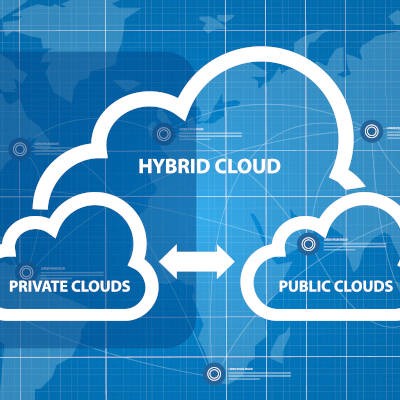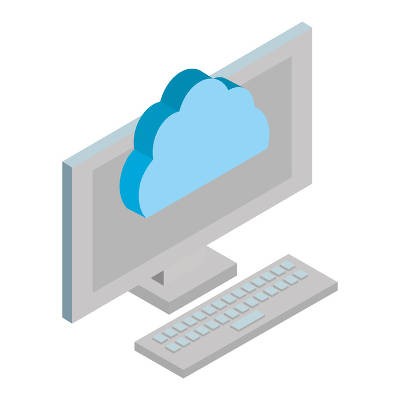Argentum IT LLC Blog
As technology has developed, the tools available for businesses to use have gained considerable benefits. One particularly paradigm-shifting advancement, the cloud, has allowed businesses access to better solutions than ever before, and with the bonus of making them easier to manage. Let’s go over a few such solutions that many businesses are now embracing.
Despite stay-at-home orders and general social distancing policies currently making the workday that we are used to impossible to sustain, many businesses have found that cloud services have helped them to adjust. Let’s review what cloud services are available right now, and how exactly they can help many businesses operate.
For the past decade, cloud computing has grown fairly rapidly, but as a new decade, and a pesky virus has people (and businesses) leaning on hosted computing solutions more now than ever, it seems like a good time to review the types of cloud options that are available, and how they provide value to businesses just like yours.
As important as it is to keep your technology up-to-date, it can sometimes be prohibitively expensive to do so throughout your entire business. If you have found yourself in this position, one option you may consider is to resort to hosted desktop solutions. Here, we’ll go over what a hosted desktop is, and how it can serve companies well.
If you asked the layman on the street about cloud computing, you may get some surprising answers. Some people may actually believe that the computing resources are stored in the clouds in the sky. Obviously, that isn’t the case, but one thing is certain: not all cloud strategies are understood by the people that use them. This month we will take a look at the different types of cloud computing and how they can actually work for business.
Thanks to the increasing capabilities of modern computing networks, businesses have been able to experience enhanced productivity. One such capability, cloud computing, has allowed businesses to reach outside of their physical location to conduct their operations. Here, we’ll review some of cloud computing’s other benefits.
Cloud computing has revolutionized the way business is done, but most businesses don’t always feel comfortable storing data and hosting critical infrastructure in the cloud. Every business has to determine what kind of computing infrastructure is right for them. Many businesses today have decided to spread their technology investments around as they attempt to find solutions for all types of operational needs.
Voice over Internet Protocol, also known as VoIP, has grown more popular with businesses in recent years, and it’s hard not to see why. The sheer amount of benefits that it provides to businesses--small organizations in particular--make your traditional telephone system look outdated and inefficient. We’ll discuss some of the greatest benefits today.
The cloud has helped many businesses push beyond their limits, but is your organization taking advantage of it? Depending on the needs of your specific business, the cloud can benefit your organization in ways you could never dream of just 20 years ago. We’ll go through some of the best ways the cloud can help your organization.
Cloud computing can be used for many things, and nowhere is this more true than in the business environment. Organizations of all shapes and sizes use the cloud to keep operations moving forward. Some have even moved their entire human resources and payroll departments into the cloud. We’ll help you decide if this is the right approach for your organization.
Hosted solutions are used in modern business practices for a variety of reasons, but by far the most common reason is because the business doesn’t necessarily have the staff or resources to take care of the solution in-house. The process of implementation will vary by business, but we can walk you through the process nonetheless, including building the solution, renting the solution, and buying the hosting space.
Cloud computing is a major player in the way that businesses are approaching their daily operations. This might bring into question whether or not your organization is actually using the cloud in the first place, but one thing is certain--if you haven’t implemented the cloud yet, it’s difficult to not do so, especially considering how great it can be for your company.
Technology helps businesses of all kinds keep their operations running soundly, but depending on the way that it’s managed, it could have detrimental effects on your company. For example, if you have all kinds of solutions hosted on specific servers or workstations, you’re keeping them from being accessed by devices that aren’t connected to that specific network. Wouldn’t it be better if everything was centralized so that all of it could be accessed at a glance?
By now you’ve heard about the cloud and all that it can do for businesses, but not all cloud providers can claim equal levels of availability and overall quality as others. Therefore, one of the most critical considerations you have to make when rolling out a cloud service regards who will be managing your company’s cloud computing platform.
Are you still hesitant to adopt cloud computing for your company’s IT needs? For the cautious business owner, adopting new technologies isn’t a move that’s to be made lightly. However, cloud computing is much more than a passing fad. In recent years, the cloud has become such a reliable and efficient tool for businesses that it deserves your attention. Take for example these three misconceptions about the cloud.




















